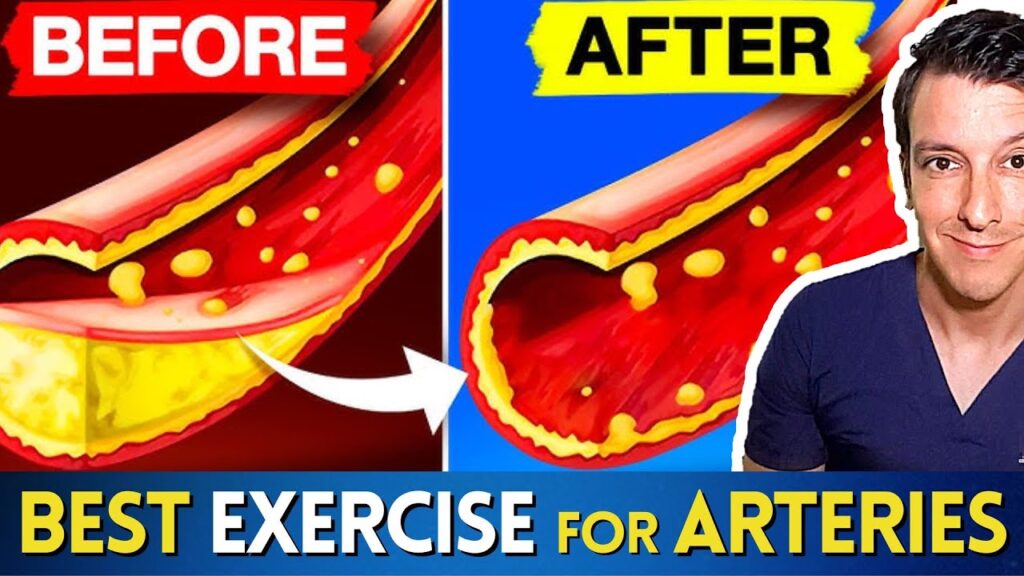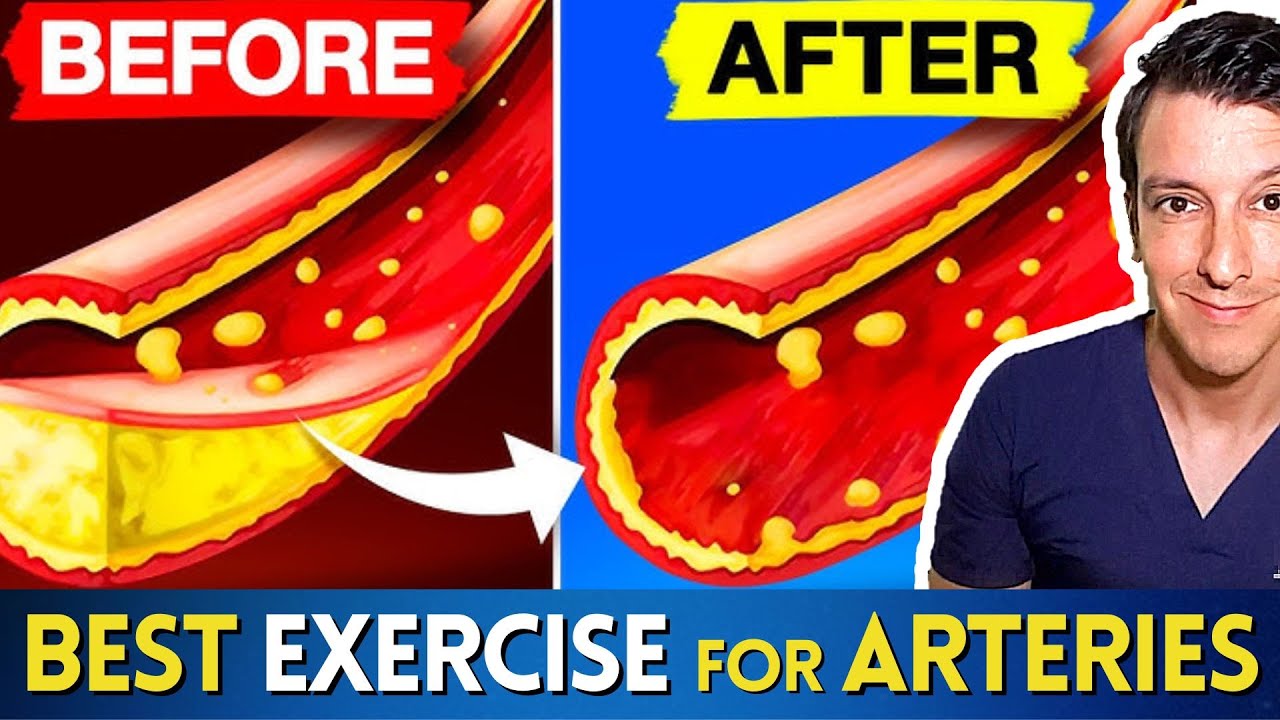It’s important to prioritize your heart health through exercise and proper nutrition. The Best Workout to Unclog Arteries article highlights a study that compared HIIT and regular cardio for reducing plaque in arteries. The study found that both forms of exercise showed benefits, emphasizing the importance of staying active to maintain a healthy heart. Additionally, the impact of diet on reducing plaque in arteries is also a key factor to consider. Always consult with a doctor before starting a new exercise program, especially if you have heart disease, to ensure you’re making the best choices for your heart health.
Stay informed and empowered when it comes to your heart health. Understanding the benefits of exercise and how it can reduce plaque in your arteries is crucial in preventing heart disease. Whether you choose HIIT or regular cardio, both forms of exercise can contribute to a healthier heart. Remember to consult with a medical professional before making any significant changes to your exercise routine or diet, as they can provide personalized advice to ensure you’re on the right track to a healthier heart.

Overview of Artery Health
When it comes to maintaining a healthy cardiovascular system, exercise plays a crucial role. Regular physical activity has been shown to have numerous benefits for artery health, including reducing plaque buildup. A recent study compared the effectiveness of High-Intensity Interval Training (HIIT) and regular cardiovascular exercise in unclogging arteries and reducing plaque burden. Understanding the influence of exercise on plaque characteristics is key to designing an optimal workout routine for individuals looking to improve their artery health, especially those with heart disease.
HIIT as a Workout Option
High-Intensity Interval Training (HIIT) involves short bursts of intense exercise followed by brief periods of rest or lower intensity activity. HIIT has gained popularity for its efficiency in improving cardiovascular fitness and overall health. Research has shown that HIIT can be particularly effective in unclogging arteries and reducing atheroma volume, a key indicator of plaque accumulation in the arteries. Incorporating HIIT into your workout routine may provide significant benefits for artery health and overall well-being.
Regular Cardio as a Workout Option
Traditional cardiovascular exercise, such as running, walking, or cycling at a consistent pace, is also beneficial for artery health. Regular cardio workouts have been shown to reduce plaque burden in the arteries and contribute to overall cardiovascular fitness. Comparing regular cardio to HIIT for unclogging arteries reveals that both types of exercise can offer considerable advantages in improving artery health. Choosing the right workout option depends on individual preferences, fitness levels, and health goals.
Combination of HIIT and Regular Cardio
For individuals looking to maximize the benefits of exercise on artery health, combining HIIT and regular cardio workouts may be a valuable approach. A mix of high-intensity interval training and steady-state cardiovascular exercise can lead to enhanced plaque reduction and improved cardiovascular fitness. Finding the optimal balance between different exercise types is essential for achieving long-term artery health benefits. Consulting with a healthcare provider or fitness professional can help tailor a workout routine that suits individual needs and goals.
Impact of Diet on Artery Health
In addition to exercise, maintaining a heart-healthy diet is crucial for promoting artery health and reducing plaque buildup. Research has shown a strong link between diet and plaque reduction in the arteries, emphasizing the importance of consuming nutrient-rich foods that support cardiovascular health. Combining a balanced exercise routine with a heart-healthy diet can maximize the benefits for artery health and overall well-being. Seeking guidance from a healthcare provider or nutritionist can provide personalized advice on dietary choices and lifestyle adjustments.
Athletes and Artery Health
Intense sports and athletic training can have a significant impact on artery health, especially in individuals participating in endurance sports like triathlons or marathons. Athletes engaged in high-intensity training may experience higher levels of calcification in their artery walls, which can affect cardiovascular health. Balancing exercise intensity with cardiovascular health considerations is important for active individuals to prevent complications related to plaque buildup and arterial health. Monitoring plaque accumulation and seeking regular medical evaluations are key for athletes prioritizing their cardiovascular well-being.
Consulting a Healthcare Provider
Before embarking on a new exercise regimen, especially individuals with heart disease, it is essential to consult with a healthcare provider. Medical advice and supervision can ensure the safety and effectiveness of workouts in improving artery health and overall cardiovascular fitness. Involving a doctor in decision-making for heart health can provide tailored recommendations based on individual medical history, fitness level, and health goals. Prioritizing professional guidance when addressing artery health can lead to positive outcomes and long-term success in maintaining a healthy cardiovascular system.
Conclusion
In summary, exercise plays a vital role in unclogging arteries and reducing plaque burden, contributing to overall artery health and cardiovascular fitness. Both HIIT and regular cardio workouts have been shown to offer benefits for individuals looking to improve their cardiovascular health. By combining exercise with a heart-healthy diet and seeking professional guidance, individuals can optimize their efforts in promoting artery health. Emphasizing a holistic approach to artery health, including regular exercise, balanced nutrition, and medical supervision, can lead to long-term benefits for heart health and overall well-being. Seek professional guidance and incorporate exercise and diet for optimal results in maintaining a healthy cardiovascular system.
